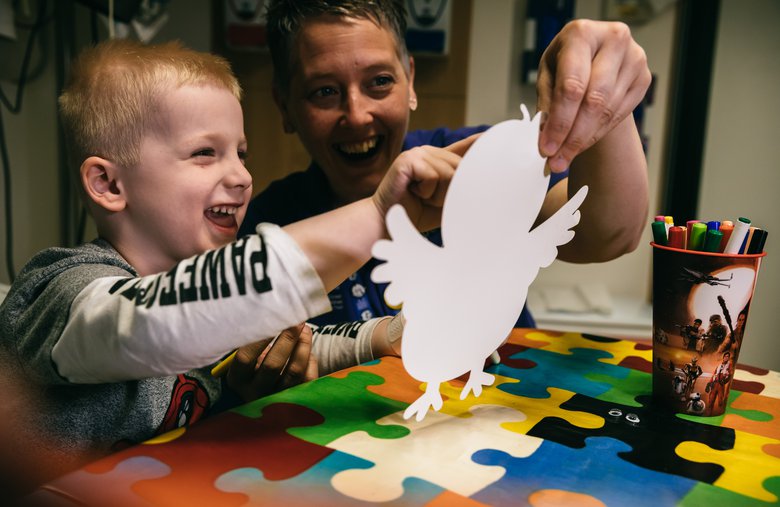Why is play important?
For children, as well as everyday worries of falling out with friends or coping with new environments, the global pandemic meant missing out on time with family, going to school and enjoying playdates.
Whether they’re anxious about being back at school, having friendship issues or sad about moving home, play helps children be more resilient and feel better. Great Ormond Street Hospital (GOSH) knows this because, with the largest hospital Play team in Europe, they’ve helped hundreds of thousands of seriously ill children face life’s toughest challenges through play.
How does play help children through life’s challenges?
The GOSH Play team knows first-hand how play helps children feel happier and builds their emotional resilience. They’ve shared their expertise with parents across the UK through these free-to-access and easy-to-use online activities, designed to help children cope with issues such as:
- Coping with illness and treatments
- Sadness and worry
- Loss and letting go
- New environments and fear of the unknown
- Making friends and feeling isolated
The GOSH Play team is fully funded by GOSH Charity. That means your donations allow our team of Play specialists and Play workers to help ease the worries of hundreds of seriously ill children that come to GOSH every day from across the UK, helping them prepare for treatments and through their recovery.

How play has changed since the pandemic
Lockdowns and restrictions during the pandemic have been tough on everyone – particularly children. To find out whether play helped the UK’s children cope with change, GOSH Charity and the GOSH Play team commissioned its first-ever State of Play report.
More than half of parents say play has boosted family bonds, but they raise the alarm about the loss of kids’ freedom, shows new research from Great Ormond Street Hospital Children’s Charity.
Download the report to read how GOSH Charity’s new research highlights the value of play during the pandemic.

The value of play
“Play has an astounding ability to connect and open up communication with children and young people. When children are feeling unsettled or have an abundance of strong feelings inside them, we can use play to help them identify and express those feelings. We can support them to form strategies to help them feel safer, calmer and empowered to make decisions about how to cope next time they feel that way.”
Sian Spencer-Little, Deputy Head of Play

"Elephant Ward will always be a big part of us” - John's GOSH journey
James’ son John was diagnosed with Burkitt lymphoma at Great Ormond Street Hospital (GOSH) in August 2020, aged nine. He went on to have five rounds of chemotherapy while staying on the hospital’s Elephant Ward.
“Play Specialist Alanna was an absolute star,” James says. “And even though they wore masks, the Play team and the nurses would always be smiling with their eyes.”
Hear more about John's journey and how play helped him during his time at GOSH.


